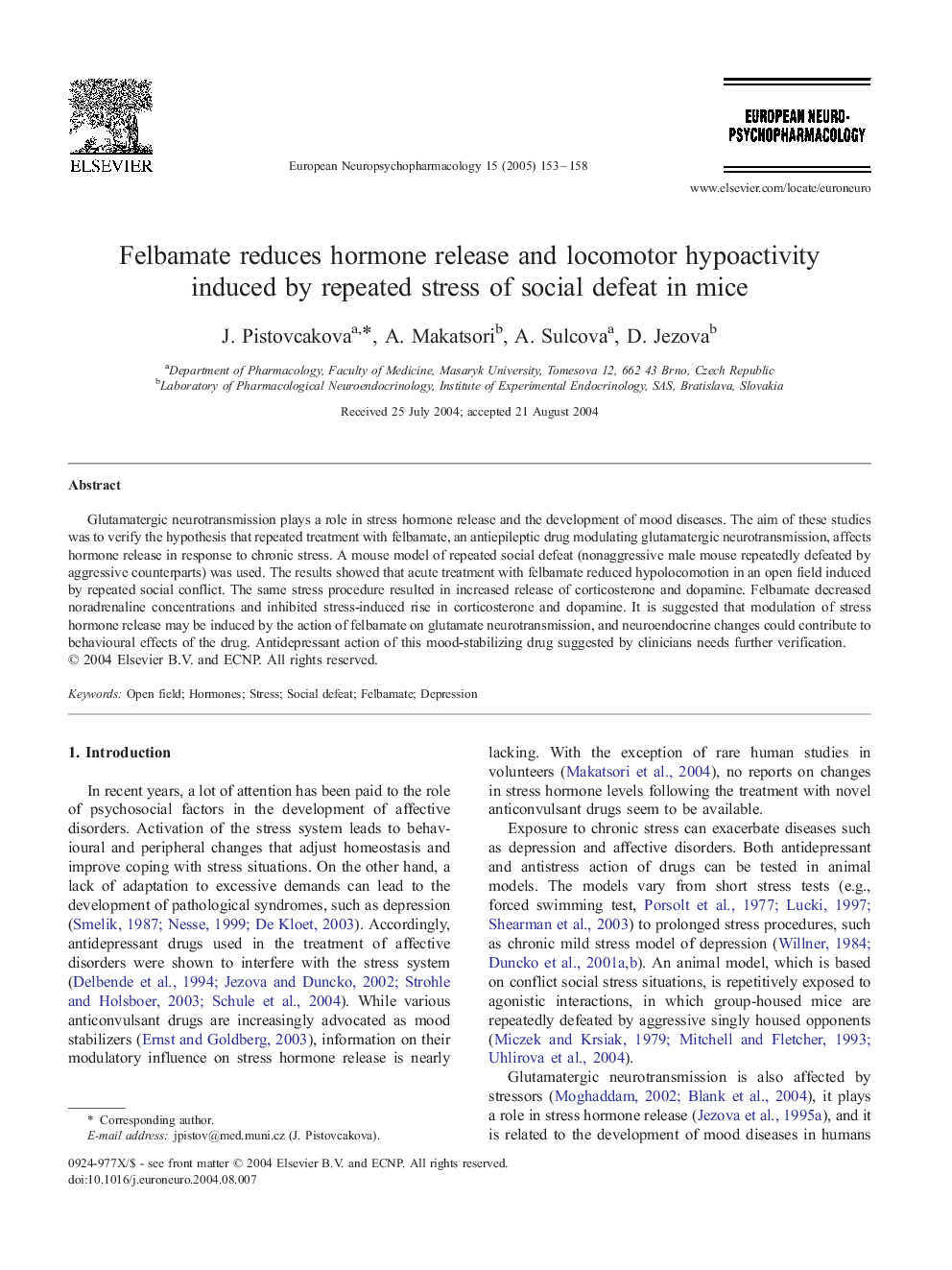| Article ID | Journal | Published Year | Pages | File Type |
|---|---|---|---|---|
| 10298849 | European Neuropsychopharmacology | 2005 | 6 Pages |
Abstract
Glutamatergic neurotransmission plays a role in stress hormone release and the development of mood diseases. The aim of these studies was to verify the hypothesis that repeated treatment with felbamate, an antiepileptic drug modulating glutamatergic neurotransmission, affects hormone release in response to chronic stress. A mouse model of repeated social defeat (nonaggressive male mouse repeatedly defeated by aggressive counterparts) was used. The results showed that acute treatment with felbamate reduced hypolocomotion in an open field induced by repeated social conflict. The same stress procedure resulted in increased release of corticosterone and dopamine. Felbamate decreased noradrenaline concentrations and inhibited stress-induced rise in corticosterone and dopamine. It is suggested that modulation of stress hormone release may be induced by the action of felbamate on glutamate neurotransmission, and neuroendocrine changes could contribute to behavioural effects of the drug. Antidepressant action of this mood-stabilizing drug suggested by clinicians needs further verification.
Related Topics
Life Sciences
Neuroscience
Biological Psychiatry
Authors
J. Pistovcakova, A. Makatsori, A. Sulcova, D. Jezova,
